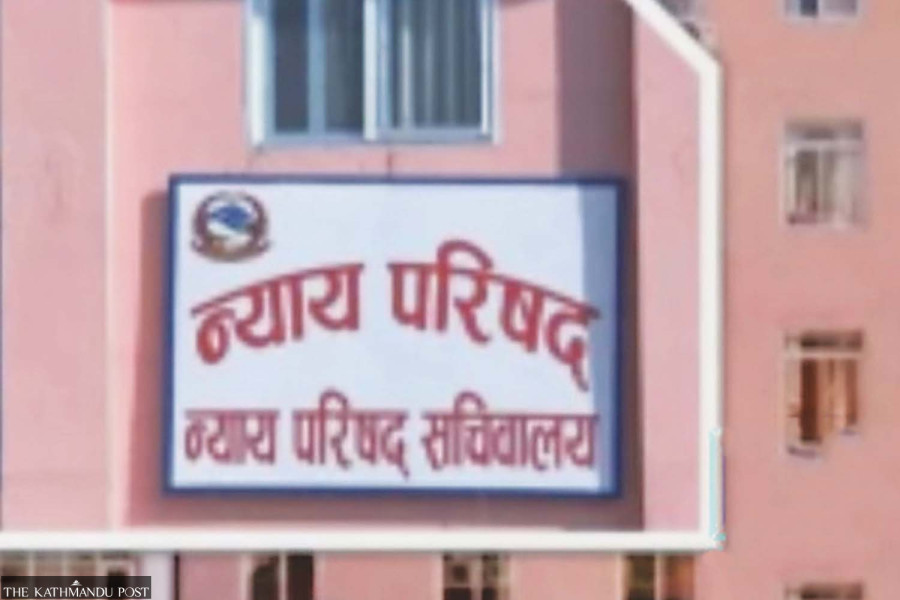National
Judicial Council to probe judges over Alam acquittal
The verdict that exonerated Congress leader Aftab Alam, the alleged mastermind of Rautahat bomb blast, is widely seen as fallacious.
Post Report
The Judicial Council has initiated action against the Birgunj High Court judges who issued a controversial verdict late last month to acquit Nepali Congress leader Mohammad Aftab Alam and three others in the heinous Rautahat bomb blast incident.
A meeting of the council transferred the judges in question, Khusi Prasad Tharu and Arjun Maharjan, on deputation to the Supreme Court. “The decision was taken following the complaints the council received,” said a senior official at the council.
The council has constituted a committee, to be headed by a Supreme Court justice, to investigate the complaints. Further decisions will be taken based on the panel’s findings, the official added.
Overturning the subordinate court’s verdict, the Birgunj bench of Janakpur High Court, on May 28, acquitted Alam and others, citing lack of evidence. A division bench of Tharu and Maharjan refused to accept that any incident of blast happened. The decision met with widespread criticism.
On Monday, Shrinarayan Singh Rajput, whose son Trilok Pratap was killed in the blast, lodged a complaint at the council seeking actions against the judge duo. He raised questions over their intention and capability. Previously, on May 30, advocate Yubraj Poudel had lodged a similar complaint at the council accusing Tharu and Maharjan of judicial misconduct.
The incident in question dates back to some 17 years ago. On the eve of the first Constituent Assembly elections in April 2008, some individuals were injured in a blast inside a shed in ward 4 of the then Rajpur Phardawa Village Development Committee (now ward 4 of Rajpur Municipality).
At least two of the injured were allegedly burnt alive after they were thrown into the furnace of a brick kiln. Alam, a candidate for the election, and his men have been accused of throwing Trilok Pratap Singh and Osi Akhtar, among others, who were severely injured in the blast, into the kiln’s furnace, in an attempt to destroy evidence of bomb-making. Trilok is the youngest son of Rajput.
While others were scared of filing a lawsuit against Alam, the prime accused, Rajput and Roksana Khatun, Akhtar’s mother, filed complaints against Alam and his accomplices.
Following the complaints, Alam had turned himself in before the police. However, then prime minister and Nepali Congress leader Girija Prasad Koirala decided to come to Alam’s rescue. In July 2008, less than a month after his arrest, the Attorney General Office, at the behest of Koirala, decided against lodging a criminal case against the alleged mastermind and his five supporters.
Ignoring threats from Alam and his family, Rajput and Khatun knocked the Supreme Court’s door against the attorney general. A division bench of then justices Sushila Karki and Bharat Bahadur Karki in May 2012 directed the government to arrest and investigate Alam and his supporters. Khatun was shot dead by an unidentified group in 2011, even before the top court’s ruling.
Successive governments, however, were defiant in abiding by the court’s ruling. Alam was arrested only on October 13, 2009 after the threat of contempt of court. The Rautahat District Court remanded him in judicial custody on November 15, 2019.
Police had registered charges of ‘attempted murder’ and ‘possession and transport’ of explosives against Alam and his men, and they were also accused of throwing the injured people into a brick kiln “to destroy evidence”.
After years-long hearing, the Rautahat District Court on April 25 last year handed down life imprisonment to Alam, his younger brother Mohammad Mahatab Alam, Shekh Saraj and Badri Sahani.
A single bench of judge Matrika Prasad Acharya kept the case against Mohammad Mobin, Shekh Fajale, Shekh Bhadi, Shahil Alam, Gauri Shankar Sah and Shekh Jumai—who are absconding—pending.
However, the Tharu-led bench overturned the decision acquitting all four.
Meanwhile, as Rajput has started lobbying against the high court decision, he has started facing intimidation and threat. “There are four-five people in my neighbourhood who are keeping an eye on me,” Rajput said in an interaction on Tuesday.
The attorney general can challenge the High Court verdict at the Supreme Court after its full text is released.




 10.12°C Kathmandu
10.12°C Kathmandu














